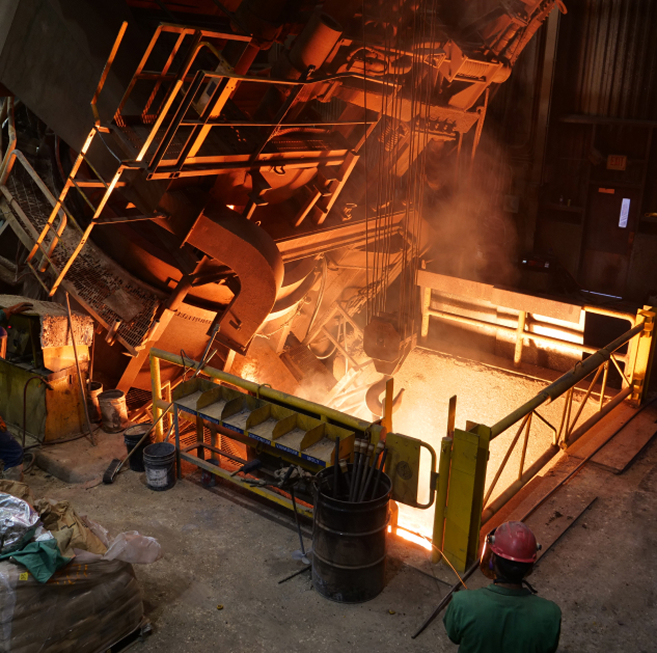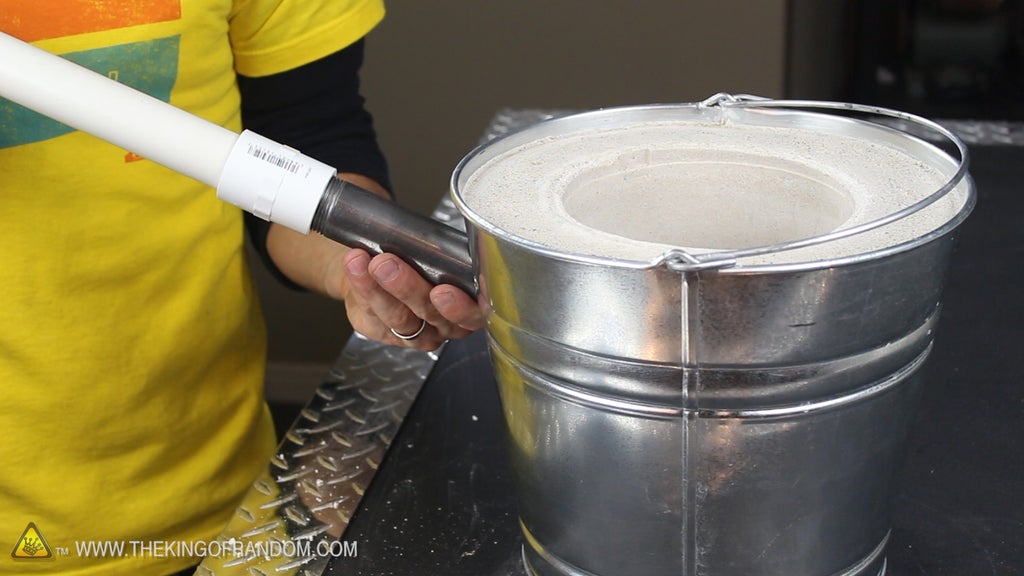How inspection systems ensure precision and excellence in every Metal Foundry pour
Exploring the Duty of a Metal Foundry in Modern Production Processes
Metal foundries are essential in the landscape of modern-day manufacturing. They offer crucial components across different fields, adapting to the needs of markets like auto and aerospace. Advanced strategies such as 3D printing and automated casting have transformed their procedures. Furthermore, sustainability has become a priority, affecting their methods. As these foundries evolve, the effects for producing effectiveness and innovation are substantial, elevating inquiries regarding their future trajectory in an ever-changing economy.
The Development of Metal Casting Techniques

With the surge of automation, foundries adopted methods like die casting and shed foam casting, improving the manufacturing procedure and decreasing waste. Each development in metal casting techniques has actually satisfied the demands of numerous industries, from auto to aerospace. As metal casting proceeds to advance, the interaction in between strategy and innovation stays critical in meeting contemporary manufacturing obstacles, guaranteeing that foundries flourish and adjust in an ever-changing landscape.
Assimilation of Advanced Technologies in Foundries
Conventional metal casting methods have actually served the market well for centuries, the integration of innovative innovations in foundries is transforming the production landscape. Automation and robotics enhance production procedures, enhancing performance and minimizing the risk of human mistake. Technologies such as 3D printing enable rapid prototyping and the production of intricate geometries that were as soon as impossible with standard methods. In addition, data analytics and the Web of Things (IoT) allow real-time surveillance and predictive upkeep, inevitably resulting in lowered downtime and enhanced performance. These developments additionally facilitate modification, allowing producers to react quickly to market demands. As sustainability comes to be a top priority, the adoption of eco-friendly innovations, such as electrical melting heaters and advanced sand recovery systems, additionally shows the industry's commitment to technology. Collectively, these innovations not just boost operational performance yet additionally placement foundries at the forefront of modern manufacturing techniques.
The Effect of Material Scientific Research on Foundry Operations
Material science plays an essential role in boosting foundry operations, affecting both the selection of materials and the overall casting procedure. Breakthroughs in material scientific research supply a much deeper understanding of the residential properties of alloys and steels, enabling foundries to choose the most ideal products for particular applications. This understanding enhances the performance and resilience of cast products, which is important for meeting sector standards.
In addition, technologies in material formulas and ingredients add to enhanced casting strategies, maximizing and minimizing issues manufacturing effectiveness. The development of advanced metal compounds and smart materials enables foundries to create lighter, more powerful elements, which are significantly sought after in different fields such as automobile and aerospace.
Additionally, product science help in the recycling of metals, making procedures a lot more economical and reliable. By leveraging the current searchings for in material scientific research, foundries can adjust to evolving market demands, guaranteeing their competitiveness in a rapidly altering manufacturing landscape.
Sustainability Practices in Modern Metal Foundries
With the expanding emphasis on ecological responsibility, contemporary metal foundries are increasingly carrying out sustainability techniques to reduce their eco-friendly footprint (Aluminum Foundry). One crucial strategy includes the recycling of scrap metal, which not just lowers waste but additionally preserves energy and basic materials. Foundries are embracing innovative melting innovations that boost power effectiveness, consequently lowering greenhouse gas discharges. In addition, making use of eco-friendly coatings and products has actually acquired grip, additional minimizing harmful exhausts throughout manufacturing
Water preservation methods, such as closed-loop air conditioning systems, are being implemented to minimize freshwater usage. Many foundries are additionally spending in renewable resource sources, like solar and wind, to power their procedures, consequently reducing dependence on fossil fuels. Furthermore, staff training programs concentrated on sustainability practices promote a culture of ecological recognition within the labor force. These efforts jointly contribute to an extra lasting future for metal foundries while meeting the demands of eco-conscious consumers.
The Future of Foundries in an Altering Financial Landscape
As the international economy develops, foundries deal with a myriad of difficulties and chances that will certainly form their future (Metal Foundry). The increasing demand for light-weight materials and progressed alloys demands development in production strategies and technological combination. Automation and smart manufacturing practices are ending up being necessary for boosting performance and decreasing operational prices. On top of that, the surge of sustainability worries urges foundries to embrace greener procedures and recycling campaigns, aligning with worldwide ecological goals
The financial landscape is also changing, with supply chain interruptions and changing basic material rates presenting substantial hurdles. Foundries must adjust by diversifying their supply sources and buying materials science. Partnership with sectors such as renewable energy and electrical vehicles can cultivate development. Inevitably, the future of foundries will rely on their ability to leverage technological improvements while remaining receptive to market characteristics and environmental imperatives, guaranteeing their significance in modern-day production.
Often Asked Questions
What Sorts of Metals Are Commonly Utilized in Foundries Today?
Frequently made use of steels in foundries today include aluminum, iron, steel, zinc, and copper. These materials are preferred for their varied properties, enabling a large range of applications in markets such as auto, aerospace, and construction.
How Does a Foundry Guarantee Quality Assurance in Its Products?

What Precaution Are Executed in a Metal Foundry?
Metal foundries implement safety and security procedures including individual protective tools, ventilation systems to reduce breathing of fumes, regular safety and security training for workers, emergency action methods, and rigorous tools maintenance to reduce risks and guarantee a risk-free functioning environment.
How much time Does the Metal Casting Refine Normally Take?
The metal casting process normally takes several hours to days, depending upon variables such as the intricacy of the mold, the kind of metal utilized, and cooling times. Each task's needs significantly influence the duration.
What Industries Largely Depend On Metal Foundries for Production?
Automotive, aerospace, building, and equipment industries primarily depend on Web Site metal foundries for production. These markets use cast steels for elements, ensuring sturdiness and efficiency necessary for their corresponding applications in production and Aluminum Foundry assembly processes.
Metal foundries are pivotal in the landscape of modern production. Aluminum Foundry. Traditional metal casting techniques have served the industry well for centuries, the combination of innovative modern technologies in foundries is revolutionizing the production landscape. Breakthroughs in product scientific research give a deeper understanding of the buildings of metals and alloys, enabling foundries to select the most appropriate products for details applications. With the growing emphasis on ecological responsibility, contemporary metal foundries are significantly implementing sustainability methods to reduce their eco-friendly footprint. Automotive, construction, equipment, and aerospace industries largely rely on metal foundries for manufacturing